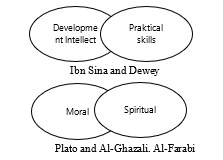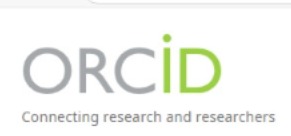RECONSTRUCTION OF ISLAMIC EDUCATION GOALS IN THE MODERN ERA PERSPECTIVES OF WESTERN CLASSICAL PHILOSOPHERS AND MUSLIM PHILOSOPHERS
DOI:
https://doi.org/10.63889/pedagogy.v17i2.238Abstract
This study examines the concept of educational objectives and Islamic educational objectives based on the thoughts of Western classical philosophers (Plato and John Dewey) and Muslim philosophers (Al-Ghazali, Ibn Sina, and Al-Farabi). Plato saw education as a means of achieving universal wisdom and truth through moral and intellectual development, while John Dewey emphasized education as a pragmatic tool for forming individuals who think critically and can actively participate in a democratic society. On the other hand, in the context of Islamic education, Al-Ghazali emphasized education as a spiritual process to get closer to God, Ibn Sina combined intellectual education and science to achieve human perfection, while Al-Farabi emphasized education as a tool to achieve moral happiness and social balance. The problem that arises is the difference in focus: general education (Plato and Dewey) emphasizes more on the development of rationality, morality, and social engagement, while Islamic education emphasizes more on the balance between spirituality, rationality, and moral responsibility. The research method used is comparative literature analysis, where the main thoughts of these figures are analyzed philosophically to identify ideal educational goals. The results showed that general education, according to Plato, focused on wisdom and morality, while Dewey emphasized active learning relevant to practical life. Islamic education, according to Al-Ghazali, is more oriented towards spirituality, Ibn Sina on rationality and science, and Al-Farabi on moral and intellectual balance to create an ideal society. The contribution of this research is to answer the challenges of modern education by reconstructing the current educational goals so that education can create individuals who can think critically, be ethical or moral, and have strong life skills. A need for the reconstruction of holistic educational goals that develop intellectual, moral, and spiritual as a result of the synthesis of thinking about the goals of Western philosophy education and Islamic philosophy. Strategic steps taken based on the results of the research include the development of an integrated curriculum, the implementation of active and adaptive learning, the integration of character education and ethics in the curriculum, the use of technology for spiritual and moral education, teacher training in the modern era and the formation of value-based progressive policies with a holistic approach.

Downloads
Published
How to Cite
Issue
Section
License
Copyright (c) 2024 Tri Setyo, Rina Murtyaningsih, Selamet Awan Setiawan

This work is licensed under a Creative Commons Attribution-ShareAlike 4.0 International License.





